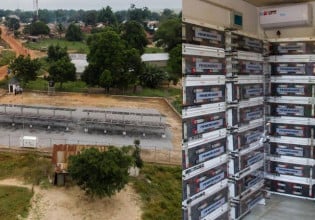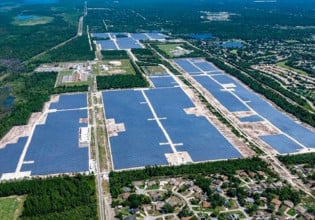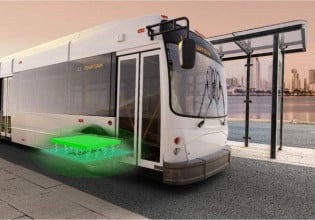Miba FLEXcooler Adapts to the Shape of Battery Cells for Electric Vehicles
Miba is currently involved in an EU research project called “i-HeCoBatt” in an attempt to equip the FLEXcooler® with sensors so that it becomes a smart device.
One of the most important challenges in the development of electric drive mechanisms is the thermal management of the batteries. This is what decides the vehicle range and battery lifetime, while also being a major factor in fast charging. Current development is moving towards liquid cooling. One particular challenge is to create the best possible thermal connection between the battery cells and the cooling element. The FLEXcooler®, developed by the Austrian technology group Miba, is a battery cooling system with a flexible shape that enables it to adjust itself to the battery cells in the best possible way.
FLEXcooler Technology Does Not Need Gap Fillers
The Miba FLEXcooler® is the first liquid cooling system in the market that does more than optimizing the absorption and dissipation of heat. The close connection between the battery cells and the cooling system means that the Miba FLEXcooler® can do completely without gap fillers, i.e., materials that fill the gaps between the battery cells and cooling system. The Miba FLEXcooler® also scores highly with its low weight. It can be used for prismatic, cylindrical and pouch battery cells alike.
Further Development Towards Intelligent Battery Cooling System in EU Project
Working with a European automotive manufacturer and other partners, Miba is currently involved in an EU research project called “i-HeCoBatt” (Intelligent Heating and Cooling Solution for Enhanced Range EV Battery Packs). The aim is to equip the FLEXcooler® with sensors so that it becomes a smart device. The sensors provide the vehicle controls with important information about the temperature distribution within the battery, thus controlling and optimizing its functions during operation. This makes the battery more efficient and gives it a longer life. At the same time, the resulting temperature data forms the basis for new digital features, such as early service alerts and evaluations of battery data through cloud solutions.
The consortium that handles this EU research project is a partnership involving seven organizations from industry and research, including start-ups, from Austria, Germany, Spain, and France.
Miba is Already Offering a Large Number of Solutions in e-Mobility
Miba already has a large number of e-mobility solutions for its customers. For example, the Miba Group is producing high-power resistors for a large number of electric vehicles manufacturers, including for the biggest EV manufacturer in the world. Furthermore, Miba is building production facilities for electric engine stators for the automotive industry, and the technology group is also manufacturing a range of solutions for hybrid vehicles, such as sintered components and friction materials.
At the same time, Miba is actively involved in many development projects on electric vehicles, including a power fuse project for high-voltage batteries, the production of hairpin stators for electric engines, as well as developing axial flux motors as an innovative electric engine concept, coating solutions for fuel cells and cooling solutions for power electronics in electric vehicles. “E-mobility is a growth area for us,” says Miba CEO F. Peter Mitterbauer: “We see electrification as an opportunity to develop an additional business segment in close cooperation with our customers.”
About Miba
Miba is one of the leading strategic partners of the international engine and automotive industry. Miba AG is a family-run industrial and technology company that was founded in Laakirchen (Upper Austria) in 1927. The company produces plain bearings, friction linings, sintered molded parts and coatings. Miba also manufactures passive electronic components such as resistors and heat dissipation systems, which may include: a. are required for energy transmission systems. In addition, the company develops and produces special machines for the precise mechanical processing of large components. Miba employs around 7,800 people; the group has 29 locations in eleven countries.






